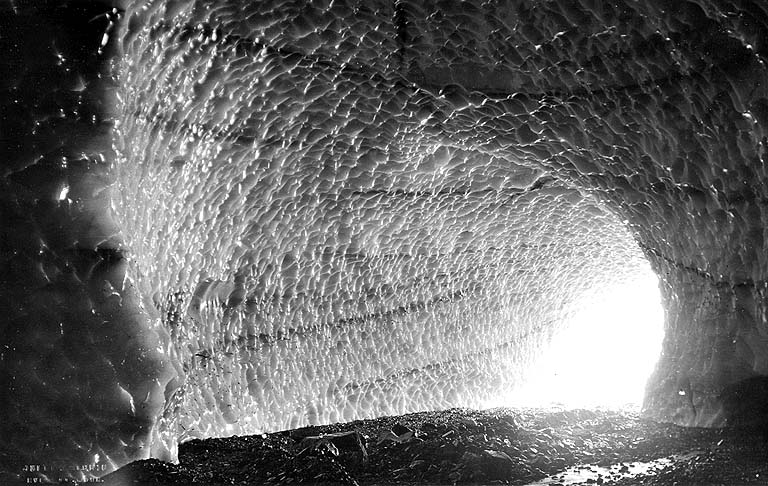Uaimheanna agus Uaimheadóireacht: Words for Caves and Caving in Irish Posted by róislín on Jul 15, 2018 in Irish Language
(le Róislín)
Given the recent amazing rescue of the Thai soccer team and their coach in Chiang Rai Province, Thailand, this seems like a good time to go over some Irish words for caves and caving.
The most basic word, in my experience, for cave, is “uaimh,” pronounced roughly “OO-iv.” Additional forms of the word are “uaimhe” (of a cave), as in “adhlacadh uaimhe” (cave burial), and the plural, “uaimheanna,” as in “ag dul isteach sna huaimheanna” (going into the caves). “Uaimh” can also mean “cavern,” “crypt,” or “underground passage.” In theory, at least, there is a distinction between “uaimh” (a cave under a cliff) and “pluais” (a cave underground), but I’m not sure how much the distinction matters these days. Barúil ag duine ar bith?
This word clearly provides the basis for a word family including:
uaimheach, troglodyte, with a variation, uamhach, cave-man; probably either word could be translated either way
fear uaimhe, cave dweller, lit. man of cave. Hmm, does that mean “man cave” would be “uaimh fir“? I suppose so. But I’m still pondering the Irish for “she shed.” So far neither of these contemporary home design terms seem to have shown up in any online Irish dictionaries that I’ve been able to find.
Somehow the difference between “uaimheach” and “fear uaimhe” doesn’t seem to be as linguistically intriguing as “cave dweller” vs. the curious-looking “troglodyte,” derived from Ancient Greek “trogle” (hole, mouse-hole). Oh, well, I’ve always thought that “troglodyte” was one of the most amazing words in English, great, I’m sure for crossword puzzles, but also just fun to look at and say.
Some more words in the “uaimh” family
uaimhiúil, cavernous
uaimheadóireacht, caving, or in the Irish/UK sense, potholing. Presumably this would also suffice for the fun-looking word “spelunking,” but I can’t actually find any such entry in an Irish dictionary. Why “spelunking”? Well, it has the same origin as “speleology” (the study of caves).
“Potholing,” from a US perspective sounds more like bouncing along roads full of potholes at the end of the winter or if there is warm spell in the middle of winter.
As noted above, another word for cave is “pluais,” but in my experience, this is used more for dens, or smaller areas where animals live. The word “pluais” follows the same pattern as “uaimh” in its forms: “pluaise” (of a cave, den, etc.) and “pluaiseanna” (caves, dens, etc.).
And why stop at just two words for “cave”? There is at least one more: uachais, again with the same pattern for the possessive (uachaise) but with a different ending for the plural: uachaisí. This word is typically used for a “burrow,” unless of course, we’re talking about a badger’s sett (double t being the typical spelling to differentiate it from “set” in general), which is a “brocais” (brocaise, of a badger’s sett, pl: brocaisí, badgers’ setts).
As for types of caves, there are way to many to cover here, but to wrap up this blog, let’s just include:
uaimh oighir, an ice cave, as in the picture above. Presumably one could also say “uaimh oighearshrutha” for “glacier cave” but a quick search online doesn’t yield any hits for the latter term. Not being a geologist or s speleologist, I’m not sure if there can be an ice cave that isn’t a glacier cave. My hunch is that the words are interchangeable, but if any spelunker, potholer, or other expert knows, please do let us know, and I’ll adjust.
And the cave the boys were trapped in was karstic, so we could say “uaimh charstach” or “carstuaimh.”
Hopefully none of us will ever undergo such an ordeal as those boys and their coach did. How miraculous that they were all rescued, even those who had never swum before. True, the cost was great, with the sacrifice of one Thai diver, but overall, the scenario could have been much, much worse. SGF – Róislín

Build vocabulary, practice pronunciation, and more with Transparent Language Online. Available anytime, anywhere, on any device.





Leave a comment: